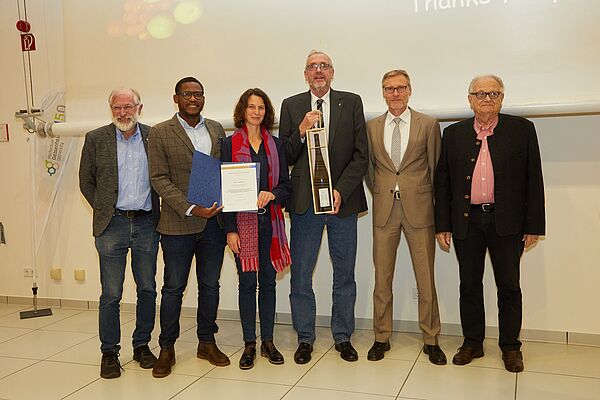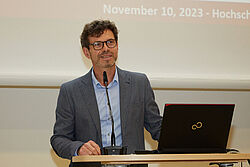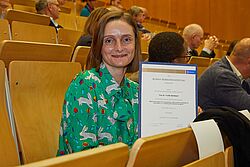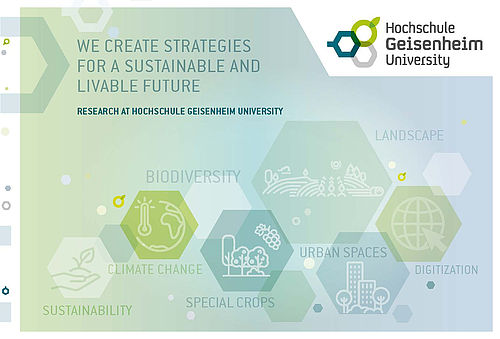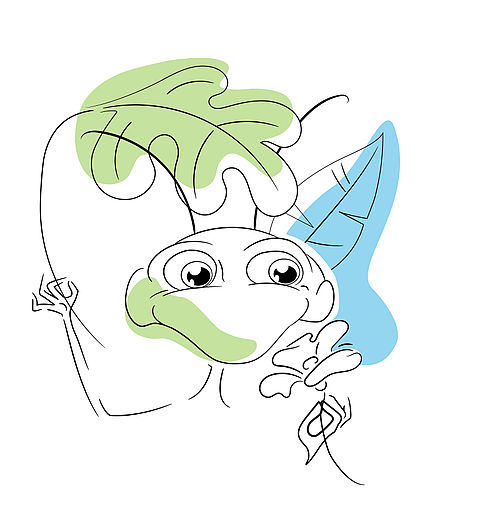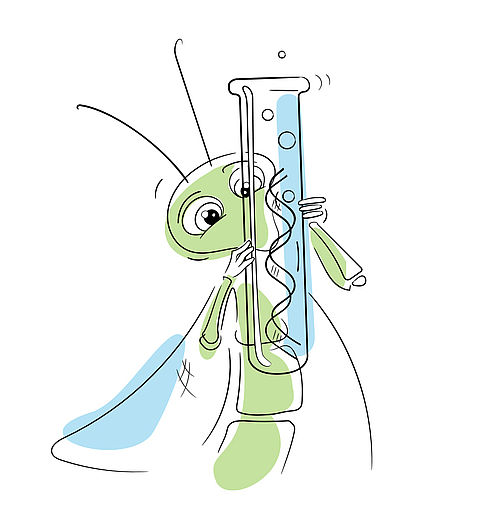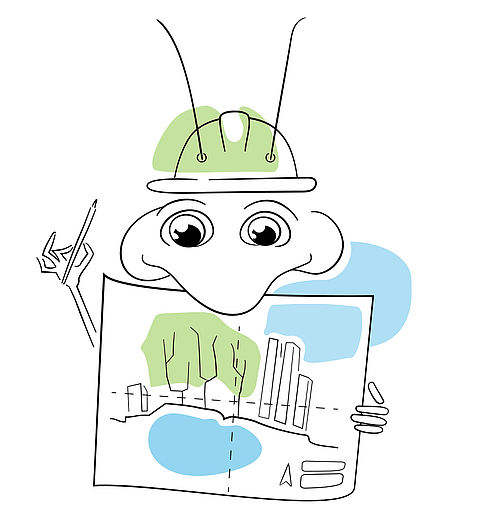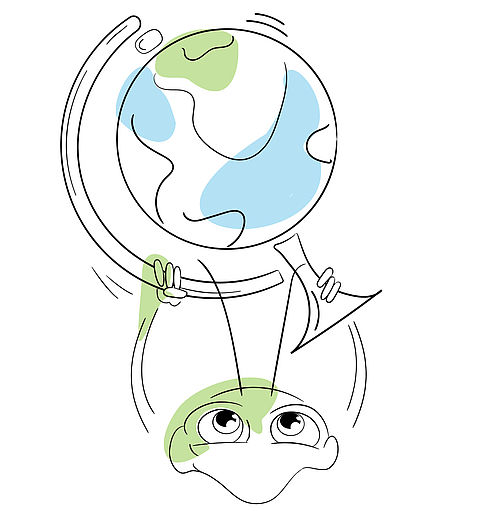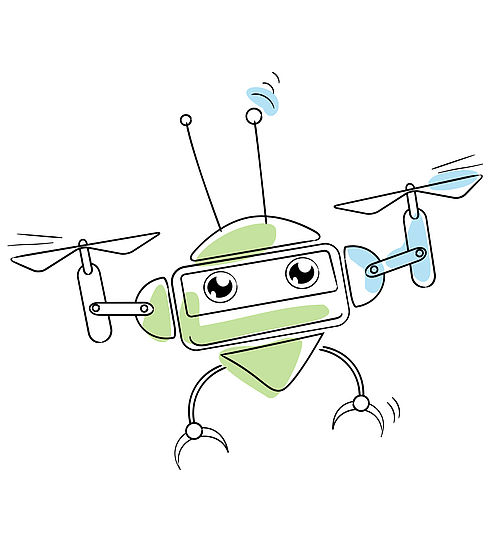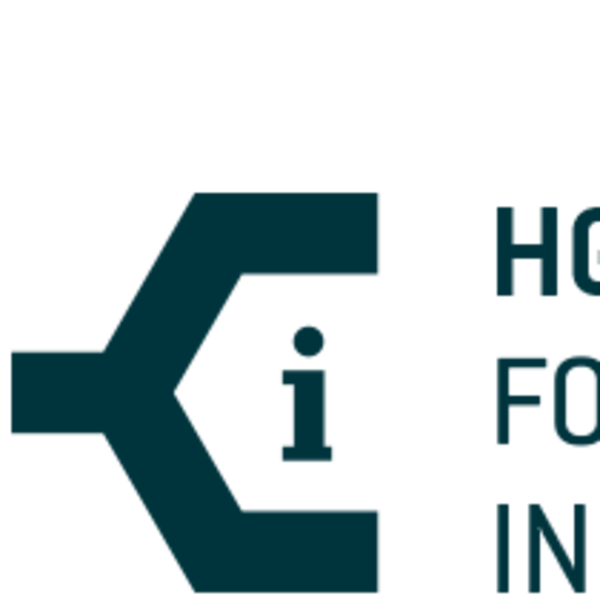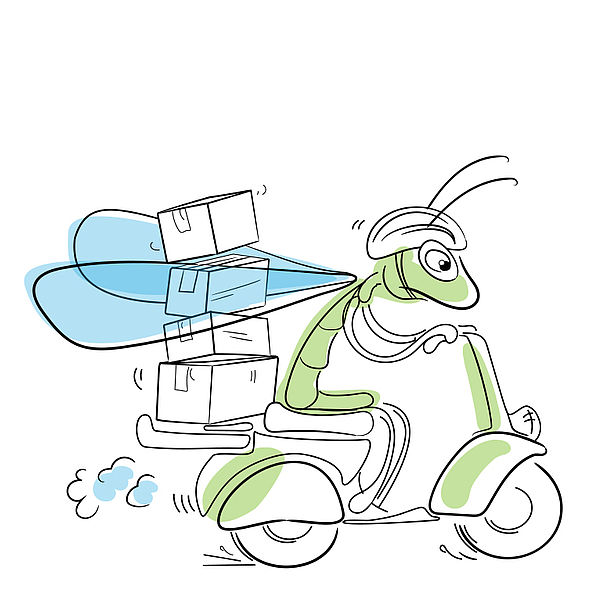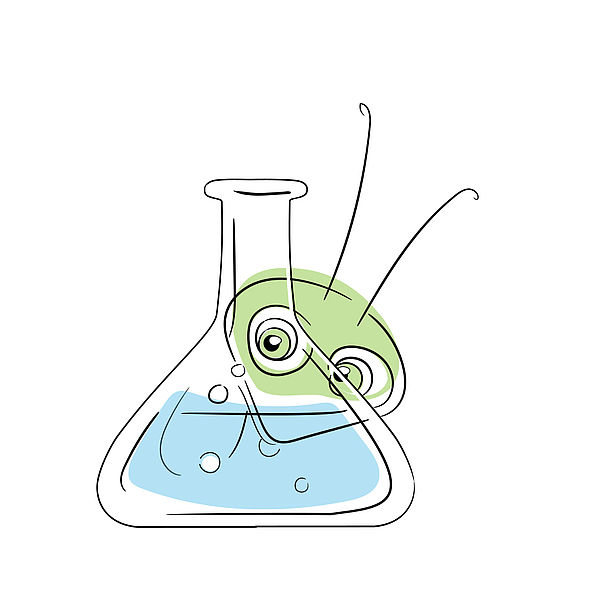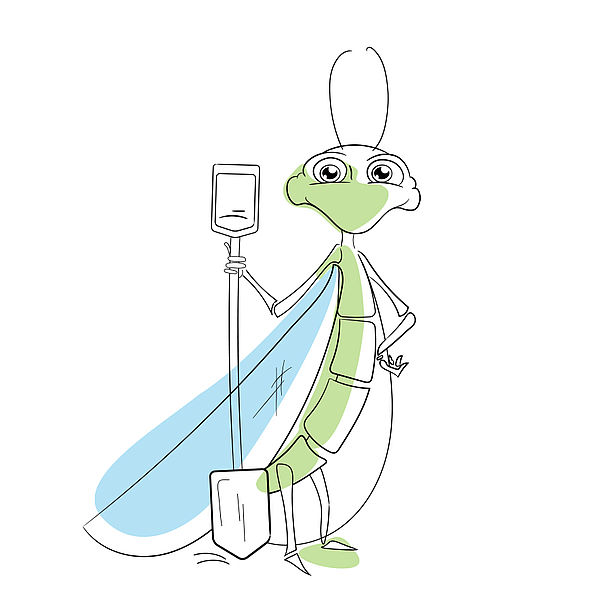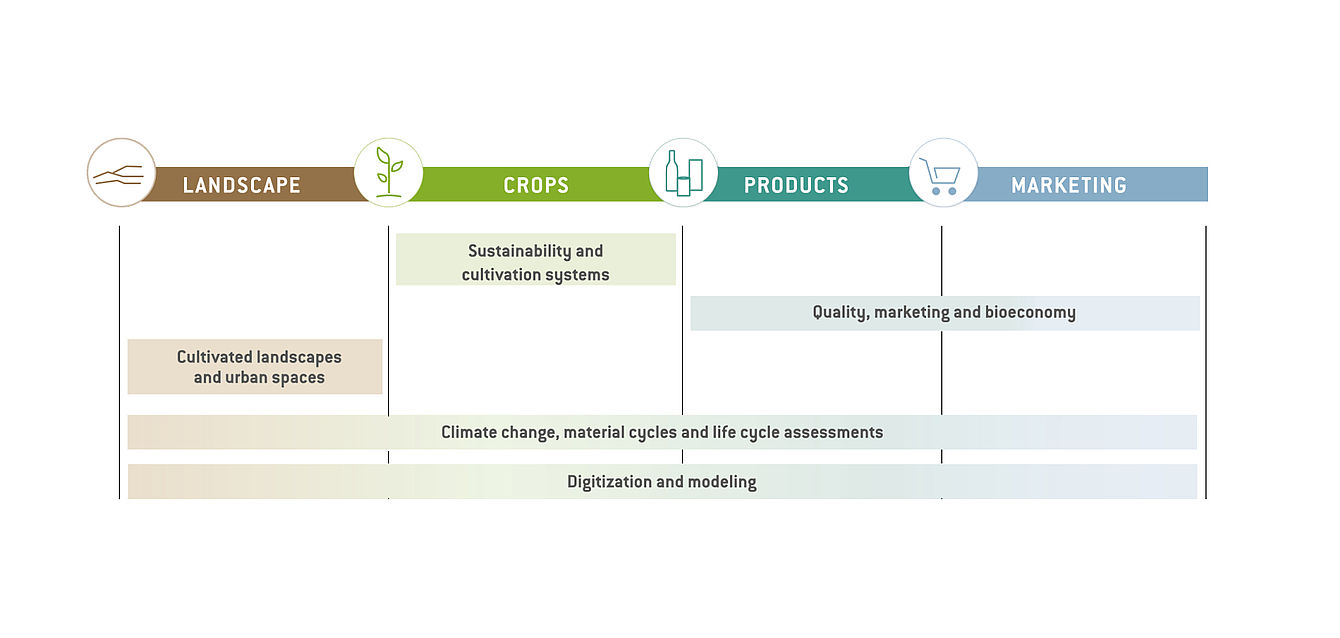The working group on pome fruit breeding (AG Kernobstzüchtung), headed by Dr. Andreas Peil, received the award in recognition of its work on apples, which spans more than twenty years and includes the development of marker-assisted selection and resistant breeding clones and varieties as well as the genetic and functional characterization of resistance to biotic and abiotic pests. The research work of the pome fruit team led by Dr. Andreas Peil, Dr. Ofere Emeriewen and Dr. Janne Lempe on combating the bacterial pathogen fire blight is world-leading, as it pursues a holistic approach that goes far beyond the strategy of breeding new resistant varieties.
The working group is also researching the genetic mechanisms of flower formation. They are key to the future adaptation of fruit trees to the changing climate, according to the researchers who presented their work at an award ceremony at Hochschule Geisenheim University. A particular focus of the working group is also on knowledge transfer: the results of scientific work carried out over the last 20 years have been published in a total of 74 publications in peer-reviewed journals, one book contribution, 36 publications in Acta Horticulturae and 26 other articles, thus making them accessible to the scientific community and breeding practitioners.
This special research and transfer activity is in keeping with the tradition of the founder Rudolf Hermann, who was introduced at the award ceremony by the Chairman of the Board of Trustees, Prof. Otmar Löhnertz, former Director of the Institute of Soil Science and Plant Nutrition at Geisenheim University, and notary Heinz Georg Muckermann as Chairman of the Board. The founder's wish was to honor scientific achievements in horticulture and viticulture that have contributed to the further development of these disciplines and to help the prizewinners to continue their work.
Olivier Geffroy from the Ecole d'Ingénieurs de Purpan, working group Laboratory Physiologie, Pathologie et Génétique Végétales, is now one of these prizewinners. He was honored for his paper Peppery aroma and rotundone: sensory aspect, consumer acceptance, impact of environmental, viticultural factors and winemaking techniques. His research focuses on peppery aromas (rotundone) in red wines. The studies are carried out using the varieties Duras, Fer, Syrah and Gamay.
The increased temperatures and decreasing rainfall expected as a result of climate change have a negative impact on the rotundone content in wines. Geffroy investigated and evaluated adaptation strategies at the breeding, viticultural and oenological levels that could prevent the loss of the peppery note caused by the aromatic compound. Studies on the ecophysiology of rotundone indicate that rotundone production takes place in the grape berries and can be influenced by abiotic (amount of water, amount of light) and biotic (infection by Erysiphe necator and Botrytis cinerea) factors. Harvest date, clone and some winemaking practices were identified as possible levers to enhance rotundone accumulation in wine. None of the winemaking techniques and fermentation variables studied resulted in increased rotundone concentration compared to a traditionally vinified control treatment.
The third prize winner, Dr. Yvette Wohlfahrt from the Institute for General and Organic Viticulture at Hochschule Geisenheim University, is also examining the effects of climate change on viticulture. She received the prize for her dissertation Effects of elevated CO2 on physiology, yield and fruit composition of Vitis vinifera L. cvs. Riesling and Cabernet Sauvignon. The work provides information on how viticultural systems react to a 20 percent increase in atmospheric CO2 concentration. As part of a field trial, the investigations ranged from various growth parameters, physiological measurements (gas exchange and sap flow measurements), analyses of primary and secondary berry constituents, to wine and sensory tests.
In addition to increased leaf and fruit biomass and a larger lateral leaf area, the prizewinner was able to demonstrate that the stomatal conductivity and transpiration rate of young, field-grown vines exposed to an increased concentration of carbon dioxide increased and water use efficiency improved. Although berry and grape weight increased, the scientist was unable to detect any negative effects on the grapes' constituents or the final wine profile.
Further information on the Rudolf Hermanns Foundation can be found here.

